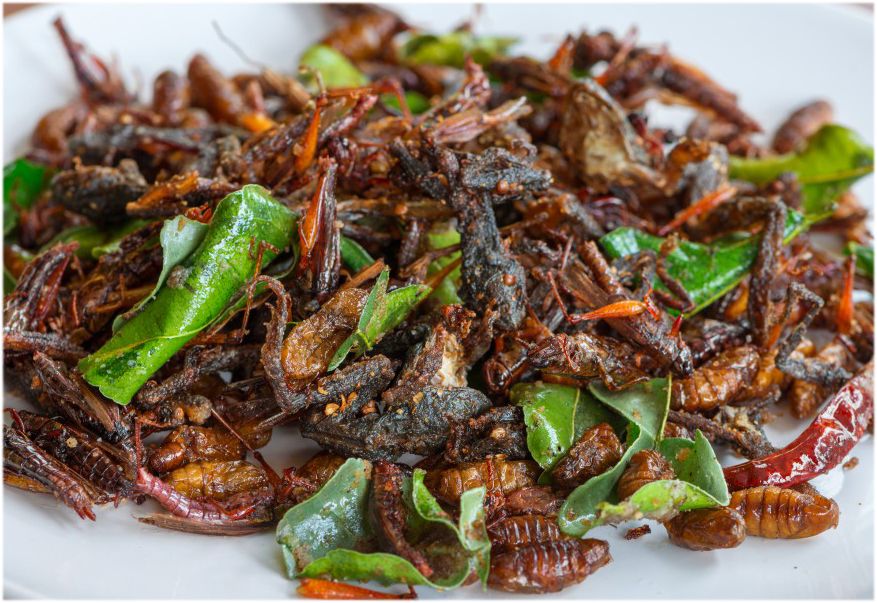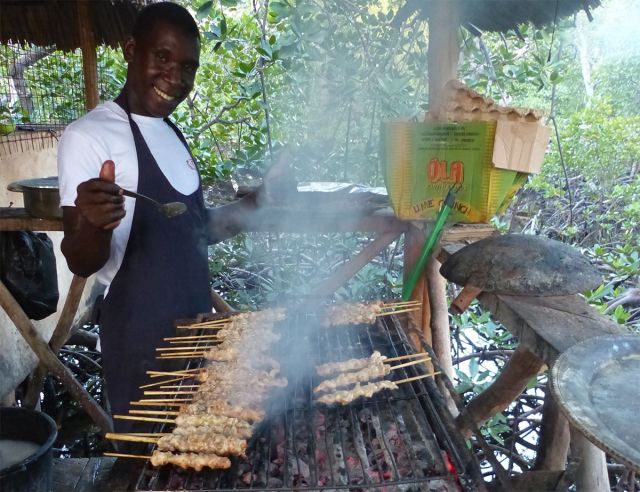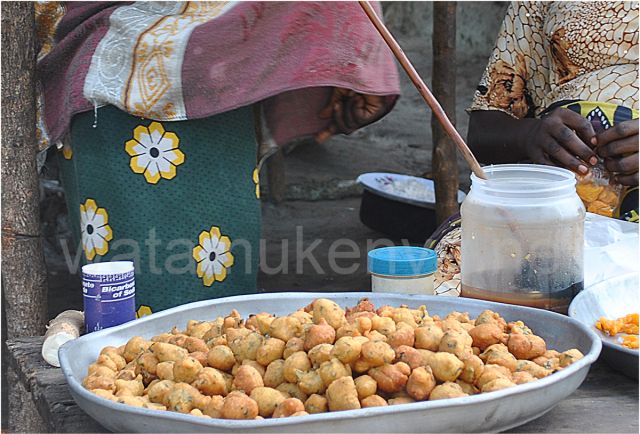
FOOD AND NATURE
30-09-2021 di redazione

Termites are a staple food in the country's northwestern regions during the rainy season, cooked in households and fried in street stalls. A delicacy for young people and an important source of protein for children, students and workers.
In and around Bungoma they are called 'chiswa' and are usually found in markets, meeting places and in many private homes as a complement to lunch. Large piles of 'chiswa' in basins were sold in cups, at an average price of 50 shillings per cup.
These are none other than termites.
During this period, women and boys are used to catching thousands of them in the fields, setting up rudimentary tents on sticks to trap them. The technique is simple: the tents, covered with dark cloths, create darkness and a sense of suffocation for the termites, which in masses tend to escape and find a lined hole through which they slip and are trapped.
The termites are then sun-dried or directly fried, and are usually eaten as an accompaniment to ugali. There are various types and enthusiasts know this: chinunda are light brown, kanabuli are purple and found at nightfall, and chinome are black and delicious, but rarer. But beware of khamakhubwe, which are late kanabuli but traditionally not edible.
In any case, they are no longer to be found in the diseased and contaminated land.
According to local environmentalists, it is not so much climate change as new chemicals sprayed on crops, especially sugar cane, that have wiped out this nutritious delicacy. Now the locals, used to this kind of food in the rainy season, have to travel more than two hundred kilometres to get it and the price has risen to 200 shillings.
The elderly chief of a rural community just outside Bungoma says termites are an important traditional resource in the places where he was born and lived.
"My grandmother used to say that these termites were nutritious and medicinal and that we would not get sick if we ate them,' he explains. 'And we loved them and we loved to watch them catch this delicacy. But unfortunately this is no longer the case.
Beyond the repugnance that these habits may arouse in Western man, who has completely different taste buds and has always been convinced that Findus puffs or Mulino Bianco camillas were healthier and more conducive to his growth, it is universally acknowledged that insects are a fundamental resource for poor populations, but could also become one for countries where some of nature's resources become scarce.
FAO, the UN World Food and Agriculture Organisation, has estimated that almost 3 billion people on the planet eat a variety of insects (mainly grasshoppers) and has called for even more people to eat them and for people with different eating habits to consider this resource virtually free. Termites rank second in insects that become food.
"Insects are still seen as pests by a large majority of people, despite growing literature indicating their valuable role in the diet of humans and animals," reads a 2013 FAO report.

Mixed potatoes with lemon aroma and chili soul are one of the delights of Kenyan coast street food.
They are called "Viazi Karai" and are sold at every street corner, fried on the fly in the wok set up in...
TOURISM
di redazione

In recent years gastronomic tourism has grown considerably all over the world.
This is due to the popularity of certain programmes and also to the media coverage of dishes and restaurants, especially in social networks.
RECIPES
di redazione

Kenya, thanks to past trade relations with Arabs, Indians and Persians, is a mix of cultures and traditions, of stories and food.
Among the most common street food...

In the markets and on the edges of many roads of Kenya you can see the sellers of this tuber (already, usually they are women, the real productive and commercial engine of this continent).

The tourist season has just begun, but those lucky enough to be in Kenya, and specifically in Watamu, these days...
PERSONS
di Leni Frau

"Bringing your personal relationship into a professional life together is not easy, but in a place of charm like Watamu everything becomes easier."
This is the common thought of Federico and Viola, comrades in life and souls of "Kobe Suite Resort".